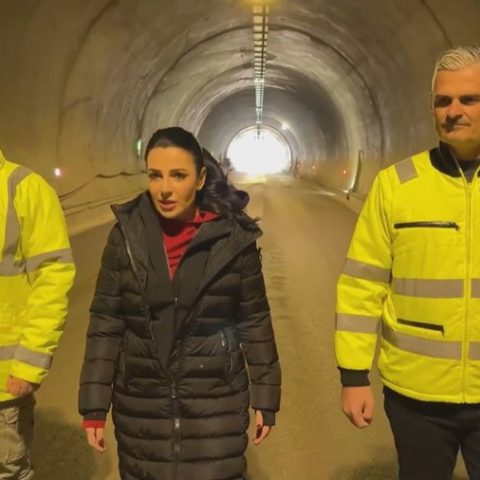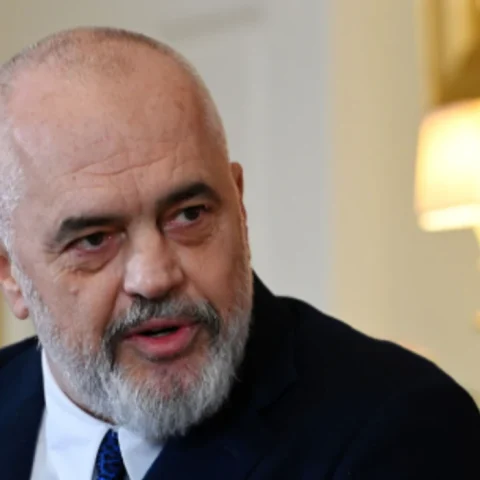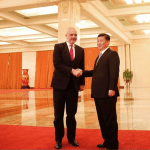By Janusz Bugajski
Western officials have assumed that Russia will accept the majority decision by the Contact Group and the UN Security Council in support of Kosova’s de jure independence. However, concern is now growing in Washington that the Russian regime may veto the entire process.
Moscow is not only pushing for an indefinite delay of decisions on Kosova’s status, but publicly opposes any solution that is imposed on Belgrade. Moreover, it is claiming “inalienable rights of state sovereignty” for Serbia and opposes Kosova’s membership in any international organizations, including the UN.
Moscow is seeking several Western concessions in return for its neutrality over Kosova. First, it wants Western acquiescence that it will be the primary security provider in the post-Soviet region. Second, it is pushing for a halt to further NATO expansion eastward. And third, it seeks to minimize U.S. military involvement among Russia’s neighbors.
Moscow will also use Kosova as a precedent along Russia’s borders. In recent months, the Kremlin has become more aggressive toward its most vulnerable neighbors, especially Ukraine, Moldova, and Georgia. The Kosova solution may embolden Russia to conclude that it has greater international legitimacy in supporting territorial separatism elsewhere.
In Ukraine, Putin is heating up the issue of the Crimean peninsula and encouraging the Russian majority to ignore the authority of the central government. With deep divisions in Kyiv, the Russian administration aims to extend its influence by playing the separatist card. Such a policy will also gain Moscow bargaining chips with the U.S. in future regional disputes, generate anxiety among other neighbors, and keep Ukraine tethered to Russia.
In Moldova, Russia has increased its pressures to steer the pro-Western government away from its aspirations for NATO accession. During the past year, Moscow has cutoff energy supplies and imposed embargos on Moldovan exports to Russia. It also backs the Transnistrian authorities and their pursuit of a separate state that could one day merge with Russia.
However, Moscow has not openly recognized Transnistrian independence as it seeks to manipulate the issue to keep the Moldovan government off balance. Its priority is to keep Moldova out of NATO by maintaining the threat of separatism rather than fully realizing it.
In Georgia, the Kremlin has also imposed trade sanctions and energy embargos and supported referenda on independence for the breakaway regions of Abkhazia and South Ossetia. As with Moldova, Moscow will not support Georgia’s division outright, as it prefers to maintain pressure on the current government until it falls into the Russian orbit and surrenders its Western aspirations.
While the U.S. and most of EU states seem committed to Kosova’s independence, they will need to bargain with Russia over its stance on final status. The fundamental error was made a decade ago when Russia was included in the Contact Group at a time when its power was in serious decline. And the West will now have to pay the consequences of raising Russia’s international stature.
Although Washington is unlikely to yield to all of Moscow’s demands in Ukraine, Moldova, and Georgia, it may decide to acquiesce to some of Russia’s regional policies by muting its criticism of the Kremlin and tempering its support for further NATO enlargement.
Of course, any perceived U.S. appeasement of Russia’s neo-imperialism will send negative reverberations throughout Eastern Europe. In the long-term, the most effective way to stifle Russia’s ambitions is to partially step back when necessary, for example when negotiating over Kosova, and then take the offensive for further NATO enlargement when Kosova is resolved.
Kosova leaders must also remember their strategic allies long after independence is achieved. When the Russian authorities seek lucrative business deals in a sovereign Kosova, officials should understand the Kremlin’s political calculations and remember its objectives. Russia cannot be a genuine ally of any European state as its goals primarily serve Moscow’s expansionist interests and counter those of an expanding Europe and an enlarging NATO.
Russian demands over Kosova

Change font size:









